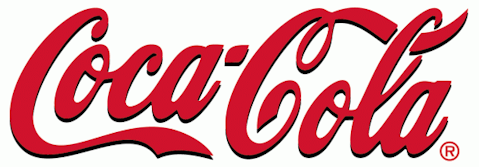Obesity is a problem in America, and more than ever the pharmaceutical industry is seeking to capitalize on the growing market for weight-control therapies. But with this month’s report that sugar is toxic, might there be a sweeter deal for investors hoping to gain from improvements to our nation’s waistline?
Is sugar really toxic?
We don’t know for sure. A University of Utah study was published on August 13 suggesting that, in mice, moderate levels of sugar consumption led to diminished competitive ability, reproduction, and survival, as well as a 69% increase in total fasting cholesterol.

A new cola war
Interestingly, the report of sugar toxicity in mice comes just days before The Coca-Cola Company (NYSE:KO) launched its new ad campaign in support of its diet beverage lines. Sales volume of Diet Coke dropped 3% in 2012, compared to 1% for Coke. PepsiCo, Inc. (NYSE:PEP) hasn’t been immune either, with Diet Pepsi sales dropping 6.2%, suggesting consumers are moving away from artificial sweeteners altogether. The growing fear of sugar hasn’t helped either.
Rather than its usual battle for market share with PepsiCo, Inc. (NYSE:PEP), The Coca-Cola Company (NYSE:KO) is waging war against the growing popular sentiment favoring organic local ingredients over artificial flavor enhancers. Additionally, Coke is facing the long-held popular belief that artificial sweeteners increase the risk of cancer, a finding from the 1970’s that showed an elevated risk of bladder cancer in rats.
The ads are aimed at addressing health concerns associated with consumption of aspartame, the artificial sweetener used in most diet beverages. They point out that artificial sweeteners are regulated by the FDA, but also that 200 studies have shown aspartame to be a safe alternative to sugar. Opponents argue that these studies are industry-sponsored and are able to produce their own unbiased contrarian research.
Regardless, the notion that sugar consumption is the driving force for our nation’s obesity, and cardiovascular disease are ever evolving. The Coca-Cola Company (NYSE:KO) is smart to exploit the idea by reinforcing consumer confidence in diet alternatives.
Diet-ish alternatives
A new development is the mid-calorie beverage market. By creating sodas with less high-fructose corn syrup than regular sodas, both companies are in pursuit of original tasting drinks with more attractive health profiles.
PepsiCo, Inc. (NYSE:PEP) Next contains 60% of the sugar in Pepsi, but still uses some aspartame. Consumers seem happy with the option, as Pepsi Next brought in $100 million in less than twelve months since its 2012 launch.
Coke Life uses Stevia, a natural sweetener from a South American plant, as an alternative ingredient. Stevia extract is already a component for many of Coke’s international beverages, and is used in the Australian version of PepsiCo, Inc. (NYSE:PEP) Next. Coke launched Coke Life this summer in Argentina, and it will be interesting to see if it catches on.
Finding an investment
Looking down the supply chain, there may be interesting opportunities in companies that specialize in natural alternative sweeteners. Stevia may make for a difficult investment, as the FDA currently only permits use of highly purified extracts, and Coke’s supplier, Cargill, is privately owned.
Ingredion Inc (NYSE:INGR) is a diversified international corn refiner that makes ingredients for food, beverages, medicines, and industrial manufacturing. Formerly Corn Products, Ingredion is a $4.8 billion company with a long history of growth. Ingredion’s Enliten is derived from a new patented strain of Stevia plant bred to optimize sweetening flavor, and is a component of Ingredion’s sweetener division that comprises 44% of revenue. Enliten is not yet a major contributor, but Ingredion is committed to expanding its natural sweetener offerings.
The stock has seen turbulent times, and is down 5% year to date on a 10% decline in adjusted EPS. The company attributes this drop to macroeconomic hardships in South America. Regardless, it generated $732 million in operating cash flow in 2012, and pays a dividend of around 2%. With a P/E of 11.6, Ingredion Inc (NYSE:INGR) may be a nice diversified play in a growing market for natural sweeteners, and it pays you to wait for temporary macroeconomic pressures to work themselves out.
The whole picture
The debate over sugar and artificial sweeteners will likely continue for some time, and highlights the evolving nature of our understanding of cardiovascular health. Coke’s attempt to revive its diet beverage may help its top line, but its international growth and timeless brand are the real forces behind its success. There are many high risk micro-cap companies playing with innovative Stevia plants, but Ingredion Inc (NYSE:INGR) is an established natural-sweetener supplier worth looking at.
The article The Sweeter Side of the Cola Wars originally appeared on Fool.com.
Seth Robey has no position in any stocks mentioned. The Motley Fool recommends Coca-Cola and PepsiCo. The Motley Fool owns shares of PepsiCo.
Copyright © 1995 – 2013 The Motley Fool, LLC. All rights reserved. The Motley Fool has a disclosure policy.





